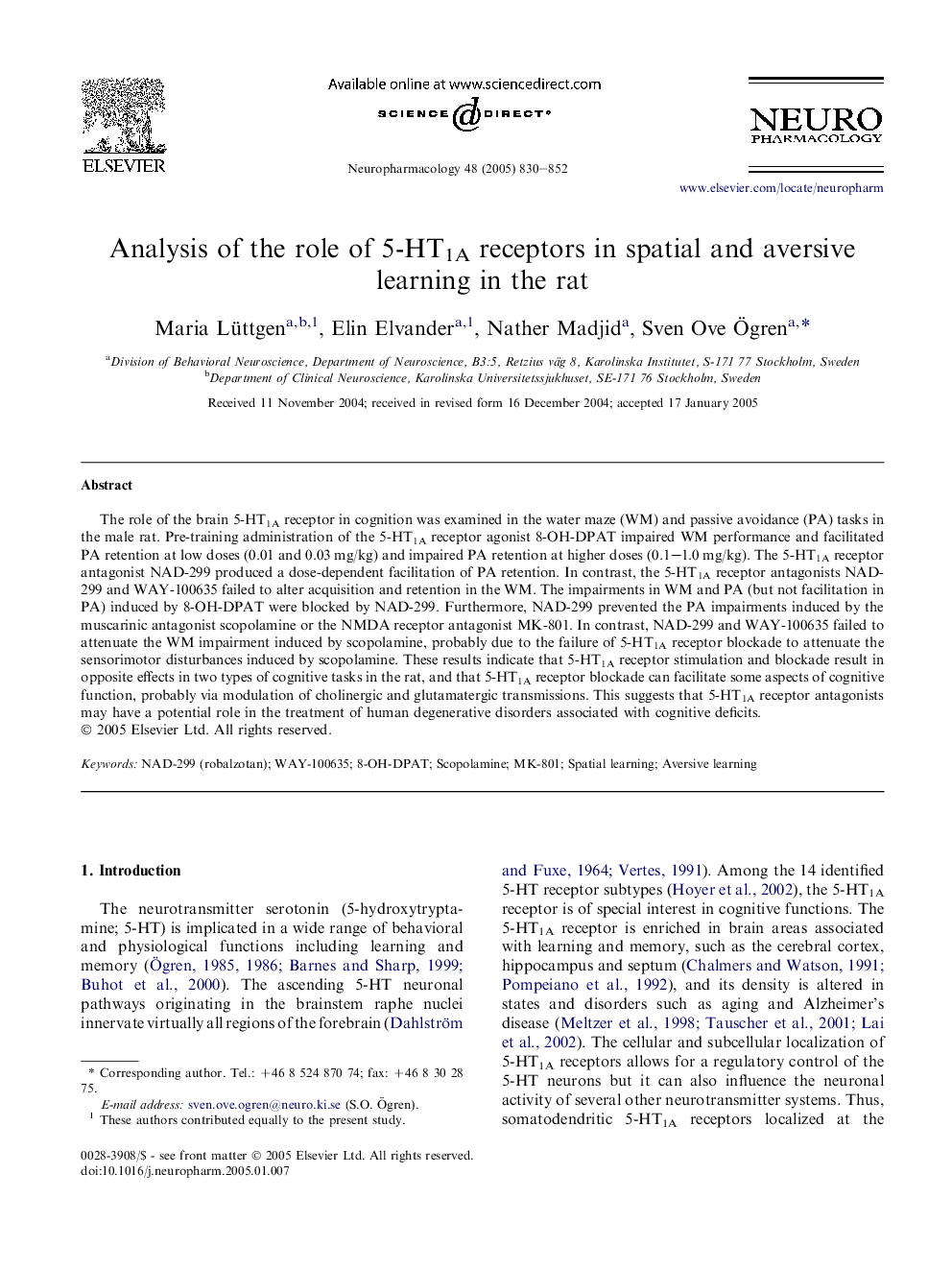| Article ID | Journal | Published Year | Pages | File Type |
|---|---|---|---|---|
| 8998506 | Neuropharmacology | 2005 | 23 Pages |
Abstract
The role of the brain 5-HT1A receptor in cognition was examined in the water maze (WM) and passive avoidance (PA) tasks in the male rat. Pre-training administration of the 5-HT1A receptor agonist 8-OH-DPAT impaired WM performance and facilitated PA retention at low doses (0.01 and 0.03Â mg/kg) and impaired PA retention at higher doses (0.1-1.0Â mg/kg). The 5-HT1A receptor antagonist NAD-299 produced a dose-dependent facilitation of PA retention. In contrast, the 5-HT1A receptor antagonists NAD-299 and WAY-100635 failed to alter acquisition and retention in the WM. The impairments in WM and PA (but not facilitation in PA) induced by 8-OH-DPAT were blocked by NAD-299. Furthermore, NAD-299 prevented the PA impairments induced by the muscarinic antagonist scopolamine or the NMDA receptor antagonist MK-801. In contrast, NAD-299 and WAY-100635 failed to attenuate the WM impairment induced by scopolamine, probably due to the failure of 5-HT1A receptor blockade to attenuate the sensorimotor disturbances induced by scopolamine. These results indicate that 5-HT1A receptor stimulation and blockade result in opposite effects in two types of cognitive tasks in the rat, and that 5-HT1A receptor blockade can facilitate some aspects of cognitive function, probably via modulation of cholinergic and glutamatergic transmissions. This suggests that 5-HT1A receptor antagonists may have a potential role in the treatment of human degenerative disorders associated with cognitive deficits.
Related Topics
Life Sciences
Neuroscience
Behavioral Neuroscience
Authors
Maria Lüttgen, Elin Elvander, Nather Madjid, Sven Ove Ãgren,
